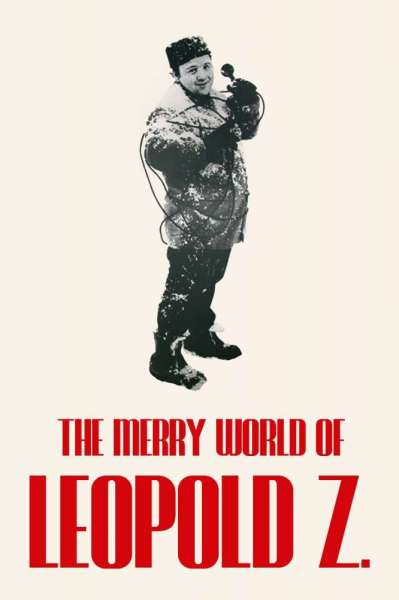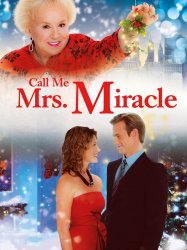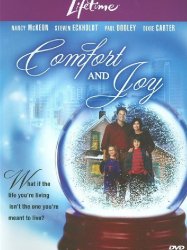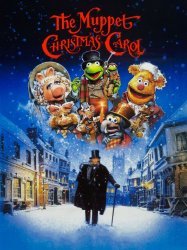The Merry World of Leopold Z is a canadien film of genre Drama directed by Gilles Carle with Paul Hébert
The Merry World of Leopold Z (1965)

If you like this film, let us know!
- Infos
- Casting
- Technical infos
- Photos
- Videos
- Film quotes
- Characters
- Music
- Awards
La vie heureuse de Léopold Z (English: The Merry World of Léopold Z) is a 1965 comedy-drama by Gilles Carle that played a key role in efforts to create a popular national cinema in Quebec.
The film follows the misadventures of its title character, a snow plow operator for the City of Montreal, on Christmas Eve. La vie heureuse de Léopold Z incorporates documentary film footage of snow clearing in Montreal, and in fact, had been originally commissioned by the National Film Board of Canada as documentary on snow clearing, only to be turned into a fictional film by the director.The film paints a portrait of a hapless Québécois little man, battling the winter elements as well as the demands of consumerism, sexual desire and the requirement at that time for French-speaking Quebecers to speak English to be successful.
As with other Quebec NFB films of the period, La vie heureuse de Léopold Z incorporates Direct Cinema techniques. It is also a film with a strong political point of view, with Carle intending his central character to be a "pre-revolutionary" figure, representing how the Québécois people were being exploited by a capitalist, English-speaking power structure.
Ironically, while the film portrays a plow operator battling a traditional Montreal snow storm, an almost snowless winter meant that Carle had to film sporadically over 18 months. The film would go on to win first prize in the feature films category at the Festival of Canadian Films, held as part of the 1965 Montreal International Film Festival (more commonly known now as the Montreal World Film Festival).
Synopsis
Dans le style direct des films de l’époque, proche de la réalité, le récit raconte une journée dans la vie du débonnaire Léopold Z. Tremblay, d.s.c. (déneigeur sous contrat) à Montréal. C’est la veille de Noël. On suit pas à pas Léo du lever du jour jusqu’à la messe de minuit alors qu'une tempête de neige s'abat sur la ville et qu'il est partagé entre les obligations de son travail et celles de sa famille. Derrière cette histoire simple, plusieurs références aux événements de l’époque annoncent les grands changements que la société québécoise s’apprête à vivre : on construit le métro, l’exposition internationale de 1967 se prépare, etc.Actors
Comments
Leave comment :
Suggestions of similar film to The Merry World of Leopold Z
There are 13 films with the same actors, 17 films with the same director, 87200 with the same cinematographic genres (including 11865 with exactly the same 2 genres than The Merry World of Leopold Z), 715 films with the same themes, to have finally 70 suggestions of similar films.If you liked The Merry World of Leopold Z, you will probably like those similar films :

The Men (1971)
, 1h47Directed by Gilles Carle
Origin Canada
Genres Comedy
Actors Donald Pilon, Andrée Pelletier, Katerine Mousseau, Marc Gélinas, Guy L'Écuyer, Jacques Bilodeau
Rating59%





Jean St-Pierre, 34 ans natif de Chicoutimi, (Donald Pilon) et Émile Ste-Marie, 24 ans natif de Montréal, (René Blouin) vivent en exclusion de la société dans les bois depuis plus d'un an et demi. St-Pierre est un ancien bûcheron, un métier qu'il a commencé à l'âge de 11 ans. Ste-Marie est un ancien étudiant et fut également chauffeur de taxi et laveur de vaisselles.

Call Me Mrs. Miracle (2012)
, 1h40Genres Drama, Comedy, Fantasy
Themes Christmas films
Actors Doris Roberts, Jewel Staite, Lauren Holly, Eric Johnson, Quinn Lord, Catherine Lough Haggquist
Rating67%





Madame Merkle, plus connue sous le nom de madame Miracle, une vieille dame facétieuse, réalise les vœux secrets des gens. Rencontrer l'homme de sa vie, un retour inespéré, un succès soudain et inattendu : voilà autant de cadeaux du ciel que madame Miracle a dans sa hotte. Cette petite fée aux cheveux blancs va changer la vie de beaucoup de personnes en cette fin d'année.

This Christmas (2007)
, 1h59Origin USA
Genres Drama, Comedy, Romance
Themes Christmas films, Musical films
Actors Delroy Lindo, Idris Elba, Mirtha Michelle, Loretta Devine, Chris Brown, Columbus Short
Rating64%





Les membres d'une famille passent Noël ensemble pour la première fois depuis 4 ans...

The Flight Before Christmas (2008)
, 1h15Directed by Michael Hegner
Origin German
Genres Drama, Comedy, Fantasy, Adventure, Animation
Themes Films about animals, Christmas films, Film d'animation mettant en scène un animal
Actors Vesa Vierikko, Tommi Korpela, Jussi Lampi, Risto Kaskilahti, Hannu-Pekka Björkman, Norm Macdonald
Rating60%





Niko, a young reindeer, was told by Oona, his mother, that his father is one of the "Flying Forces", Santa's flying sled reindeer. Niko dreams of joining his dad as a flying reindeer but he is unable to fly. While trying to fly with the encouragement of Julius, a flying squirrel who takes on the role of a mentor and father figure, the other young reindeer teased Niko. To avoid further teasing, Niko and his friend Saga leave their protected valley so Niko can practice without any disruptions. Niko gets spotted by two of the wolves, and escapes to his herd in panic, not thinking about the repercussions. While the herd is fleeing the valley, Niko overhears others talking of how his actions have damaged the herd. He decides to leave the herd in an attempt to find his father and Santa's Fell.

Comfort and Joy (2003)
, 1h29Directed by Maggie Greenwald
Genres Drama, Science fiction, Comedy, Fantasy, Romance
Themes Christmas films
Actors Nancy McKeon, Steven Eckholdt, Paul Dooley, Andrew Chalmers, Dixie Carter, A.J. Saudin
Rating61%





Jane Berry is a successful, single entrepreneur. On a Christmas, when she is driving back home in her Jaguar, she has an accident and hits a pole. Sam (Steven Eckholdt) comes to her rescue to take her out from her wagon now and tells her that he's her husband for the last 10 years and she has 2 children with him. 10 years ago she had dumped her boyfriend and left her job for Sam. Jane is confused by her new world, where she is a new Jane who is completely different from the previous Jane.

The Christmas Shoes (2002)
, 1h40Directed by Andy Wolk
Origin USA
Genres Drama, Comedy
Themes Christmas films, Musical films
Actors Rob Lowe, Kimberly Williams-Paisley, Max Morrow, Maria del Mar, Dorian Harewood, Shirley Douglas
Rating66%





Brillant avocat, Robert Layton a toujours privilégié sa carrière, au point de voir s'éloigner sa femme, Kate, et leur fille de douze ans, Lily. Lorsque Maggie Andrews, le professeur de Lily, dont cette dernière est très proche, tombe gravement malade, elle réalise que chaque moment passé auprès de son mari Jack et son fils Nathan compte. Ce dernier est bien déterminé à offrir à sa maman le plus beau des cadeaux de Noël : une paire de chaussures qui feront d'elle la plus belle...
 , 1h40
, 1h40Directed by Gilles Carle
Origin Canada
Genres Drama, Comedy, Comedy-drama
Actors Micheline Lanctôt, Donald Pilon, Robert Rivard, Maurice Beaupré, Ernest Guimond, Julien Lippé
Rating75%





Bernadette, femme d'avocat, quitte la vie urbaine pour aller vivre à la campagne avec son fils de 5 ans. Elle y rencontre Thomas, un paysan qui conteste les monopoles dans l’agro-alimentaire. Dans sa représentation naïve, le retour à la terre, fort populaire chez les intellectuels des années 1970, fournit la principale cible à l’ironie de Gilles Carle.

A Grandpa for Christmas (2007)
, 2hDirected by Harvey Frost
Origin USA
Genres Drama, Comedy, Comedy-drama
Themes Medical-themed films, Christmas films
Actors Ernest Borgnine, Juliette Goglia, Katherine Helmond, Richard Libertini, Justine Dorsey, Tracy Nelson
Rating68%





Bert (Ernest Borgnine) is a retired Hollywood actor who has been estranged from his only daughter Marie (Tracy Nelson) for many years. When she ends up in the hospital following a car accident, Social Services places her 10-year-old daughter, Becca (Juliette Goglia), with the grandfather she has never met. The generation gap is apparent as Bert and Becca try to adjust to their new lives together.

Period of Adjustment (1962)
, 1h52Directed by George Roy Hill
Origin USA
Genres Drama, Comedy, Comedy-drama, Romantic comedy, Romance
Themes Christmas films, Théâtre, Films based on plays, Adaptation d'une pièce de théâtre de Tennessee Williams
Actors Anthony Franciosa, Jane Fonda, Jim Hutton, Lois Nettleton, John McGiver, Mabel Albertson
Rating61%





On Christmas Eve, two married couples are both having a period of difficulty in their relationship. Newlyweds Isabel (Jane Fonda) and George Haverstick (Jim Hutton) are having a problem because George has bouts of performance anxiety. The second couple, Ralph (Anthony Franciosa) and Dorothea Baitz (Lois Nettleton), have their problems based on the fact that he married her for her money—and she knows it.

The Muppet Christmas Carol (1992)
, 1h25Directed by Brian Henson
Origin USA
Genres Drama, Comedy, Musical theatre, Fantasy, Musical
Themes Films about films, Christmas films, Time travel films, Ghost films, Musical films, Children's films
Actors Michael Caine, Steven Mackintosh, Dave Goelz, Jerry Nelson, Meredith Braun, Frank Oz
Rating77%





In this adaptation of the Christmas story narrated by Charles Dickens himself with the occasional commentary of Rizzo the Rat, it is Christmas Eve in 19th century London. The merriment is not shared by Ebenezer Scrooge, a surly money-lender who is more interested in profit than celebration. So cold to the season of giving is he that his bookkeeping staff, including loyal employee Bob Cratchit, have to plead with him just to have a day off work for Christmas by pointing out that Scrooge would have no customers on the holiday and that it would waste coal to sit alone in the office. Scrooge's nephew Fred arrives to invite his uncle to Christmas dinner with him and two gentlemen also come to Scrooge's offices collecting money in the spirit of the season to provide a Christmas dinner for the poor. Scrooge declines and complains that it is not worth looking after the poor, as their deaths will decrease the surplus population. Fred is shocked at his uncle's ruthless nature, but repeats his invitation, makes his own donation, and departs. Bean Bunny shows up asking for a penny to hear his song, but Scrooge throws a wreath at him in response.
 Connection
Connection
